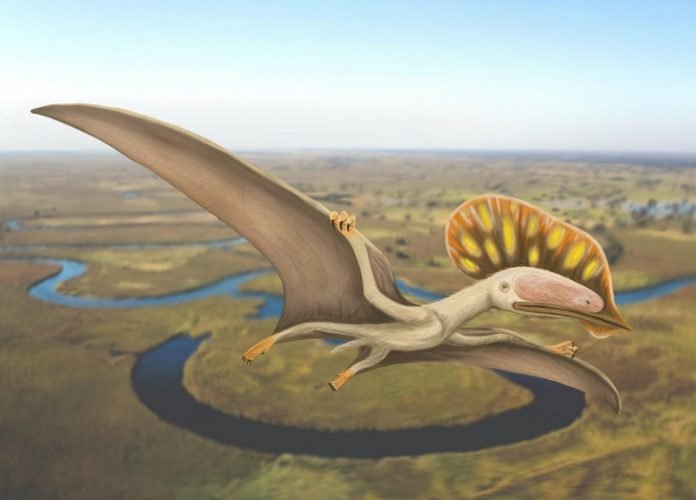
The first ever specimen of a pterodactyl, more commonly found in China and Brazil, has been found in the United Kingdom.
A fossil hunter recently discovered a peculiar shaped fragment of fossil bone while out walking his dog in Sandown Bay on the Isle of Wight.
Not sure what it was, he passed it to University of Portsmouth Palaeontology student Megan Jacobs, who thought it might be the jaw bone from a pterodactyl.
Further research proved she was right.
However, this was no ordinary pterodactyl jaw. This one lacked teeth and was remarkably similar to a bizarre group of pterosaurs called ‘tapejarids’.
They are better known from China and Brazil and have never previously been found in the UK.
Just last year a team from the University of Portsmouth discovered as similar specimen in North Africa (Morocco) which they named Afrotapejara.
The new specimen from the Isle of Wight has been named Wightia declivirostris.
Megan Jacobs said: “Although only a fragment of jaw, it has all the characteristic of a tapejarid jaw, including numerous tiny little holes that held minute sensory organs for detecting their food, and a downturned, finely pointed beak.
“Complete examples from Brazil and China show that they had large head crests, with the crest sometime being twice as big as the skull. The crests were probably used in sexual display and may have been brightly coloured.”
The researchers determined that the Isle of Wight example seemed more closely related to the Chinese tapejarids rather than the Brazilian examples.
Co-author of the study Professor David Martill, a palaeontologist from the University of Portsmouth, said: “This new species adds to the diversity of dinosaurs and other prehistoric reptiles found on the Island, which is now one of the most important places for Cretaceous dinosaurs in the world.”
The finder has kindly donated the specimen to Dinosaur Isle Museum at Sandown, where it is hoped it will go on display in the future.



